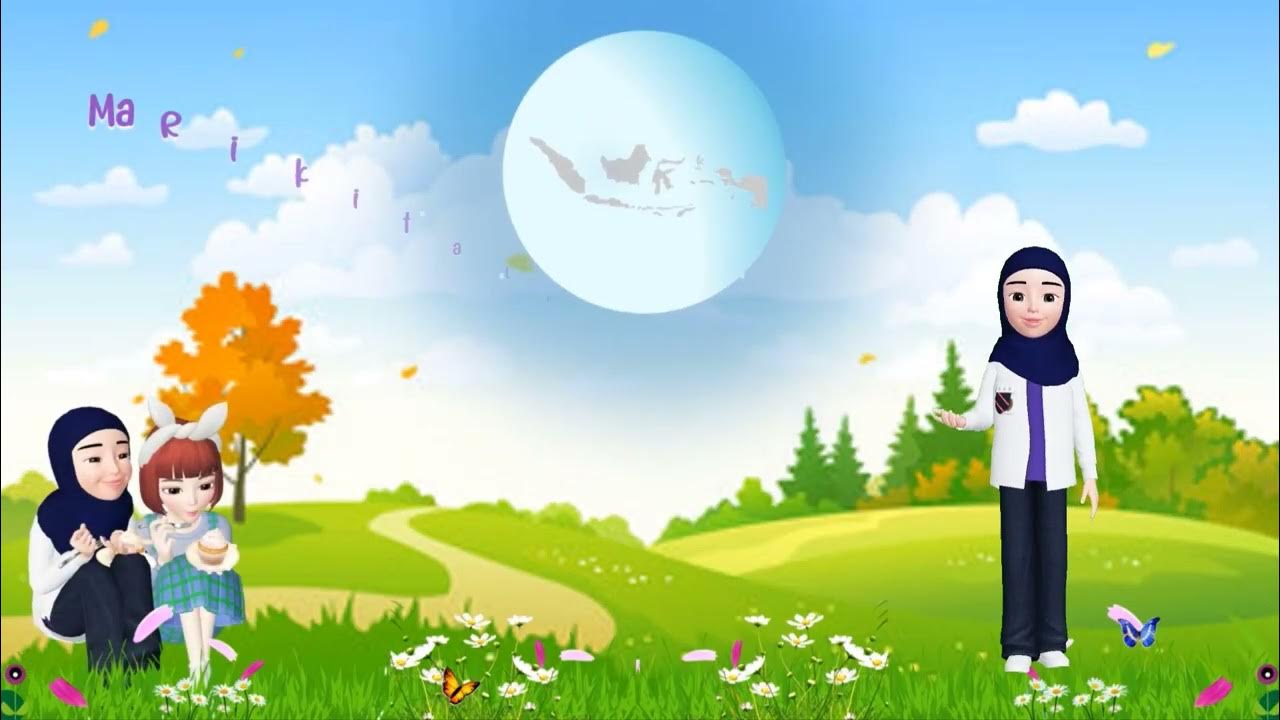#2 Keberagaman Masyarakat dalam bingkai Bhineka Tunggal Ika
Summary
TLDRThis video explores the concept of unity in diversity in Indonesia, explaining how various social, cultural, and historical factors contribute to national cohesion. It emphasizes the values of unity, equality, and shared identity, rooted in Pancasila and the 1945 Constitution. The video discusses challenges such as egoism, fanaticism, and separatism, while promoting solutions like fostering love for the nation, upholding the rule of law, and strengthening social bonds. Ultimately, it calls for a unified Indonesia despite its ethnic and cultural differences, highlighting the importance of national pride and mutual respect.
Takeaways
- 😀 The concept of 'unity' originates from the word 'satu,' meaning undivided or whole, which refers to the coming together of different components into one harmonious entity.
- 😀 Unity is crucial in Indonesian culture, representing the unification of diverse cultures into a single, cohesive, and dynamic whole.
- 😀 The third principle of Pancasila, 'Unity of Indonesia,' emphasizes the importance of national unity despite the nation's diversity in culture, religion, ethnicity, and class.
- 😀 The Constitution (UUD 1945) asserts that Indonesia is a unitary republic, highlighting the importance of unity and integrity.
- 😀 The ideal basis for national unity in Indonesia is grounded in Pancasila, particularly the third principle which promotes the common good over personal interests.
- 😀 The historical basis for national unity stems from Indonesia's shared experience of colonization, which fostered a spirit of togetherness among the nation's diverse ethnic groups.
- 😀 The Sumpah Pemuda (Youth Pledge) in 1928 and the Proclamation of Independence in 1945 were key milestones in the realization of Indonesian unity.
- 😀 The values that underlie Indonesia's unity include a sense of togetherness, humanity, mutual respect, and support across ethnic and cultural differences.
- 😀 Negative behaviors that threaten unity, such as individualism, fanaticism, tribalism, separatism, and racism, must be avoided to maintain social harmony.
- 😀 Efforts to prevent conflicts based on ethnicity, religion, or race include promoting love for the nation, the enforcement of the rule of law, and the fostering of national awareness and patriotism.
Q & A
What does 'Bhinneka Tunggal Ika' mean, and how is it related to unity in Indonesia?
-'Bhinneka Tunggal Ika' is an Indonesian phrase meaning 'Unity in Diversity.' It emphasizes the importance of national unity despite the nation's cultural, ethnic, religious, and other diversities. The phrase reflects the value of harmonizing different elements of society into a unified whole.
How does the third principle of Pancasila contribute to Indonesia's unity?
-The third principle of Pancasila, 'Unity of Indonesia,' stresses the importance of national unity. It encourages the people of Indonesia to unite as one nation despite their differences, promoting peace and solidarity across various ethnic, cultural, and religious groups.
What are the key values that form the foundation of Indonesia's national unity?
-The key values that form the foundation of Indonesia's unity include mutual cooperation ('Gotong Royong'), family spirit ('Kekeluargaan'), and consensus-based decision-making ('Musyawarah Mufakat'). These values are integral to maintaining social harmony and cohesion.
What role does the 1945 Constitution play in Indonesia's national unity?
-The 1945 Constitution, particularly in Article 1, establishes Indonesia as a unitary state, emphasizing the country's unity. It is a key legal foundation that upholds the nation's cohesive identity and promotes the idea of 'Kesatuan' or unity across its diverse population.
How has Indonesia's history of colonialism shaped its sense of national unity?
-Indonesia's history of colonialism fostered a strong sense of shared struggle among its people. The experience of being colonized unified different ethnic groups, creating a collective desire for independence and the need for national unity, which was crystallized in events like the Sumpah Pemuda (Youth Pledge) in 1928 and the Proclamation of Independence in 1945.
What negative attitudes should be avoided to maintain unity in Indonesia?
-To maintain unity, negative attitudes like individualism, fanaticism, separatism, and stereotyping based on ethnicity or race should be avoided. These behaviors can undermine social cohesion and threaten national unity by emphasizing differences rather than common ground.
What is the importance of 'Gotong Royong' in fostering unity in Indonesia?
-'Gotong Royong,' or mutual cooperation, is a central value in Indonesian society. It promotes collective action and solidarity, encouraging people to work together to solve problems and achieve common goals. This value is vital for maintaining social harmony and unity in the face of diversity.
What are the efforts to prevent conflicts that could threaten Indonesia's unity?
-Efforts to prevent conflicts include fostering a sense of love for the country, enforcing the rule of law, creating public awareness about national unity, and promoting the practice of mutual respect and cooperation. These efforts are crucial in minimizing tensions between different social and cultural groups.
Why is patriotism important for Indonesia's unity?
-Patriotism is essential for Indonesia's unity because it cultivates a sense of pride in being part of the nation. It encourages people to place the nation's interests above personal or regional concerns, fostering a strong national identity and solidarity.
How can Indonesia's citizens contribute to the country's unity?
-Citizens can contribute to Indonesia's unity by embracing values such as mutual respect, cooperation, and a commitment to the common good. They can also participate in civic activities, uphold the law, and work to bridge cultural and ethnic divides to ensure a harmonious and cohesive society.
Outlines

此内容仅限付费用户访问。 请升级后访问。
立即升级Mindmap

此内容仅限付费用户访问。 请升级后访问。
立即升级Keywords

此内容仅限付费用户访问。 请升级后访问。
立即升级Highlights

此内容仅限付费用户访问。 请升级后访问。
立即升级Transcripts

此内容仅限付费用户访问。 请升级后访问。
立即升级5.0 / 5 (0 votes)






